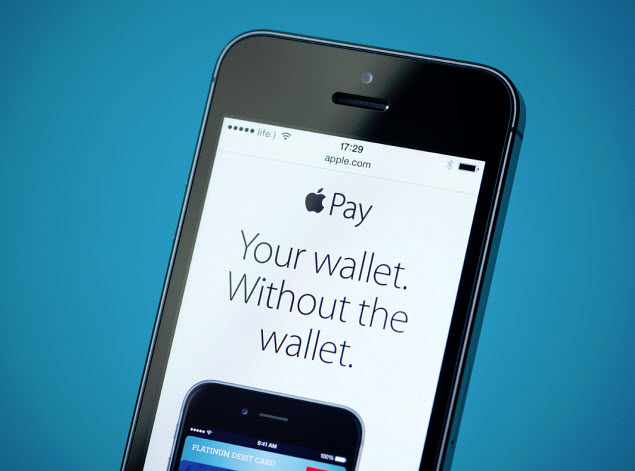Report suggests that Apple Pay could launch in Canada by March
Apple Pay may be coming to Canada sooner than expected, according to reports from 9to5Mac. The mobile payments service from Apple was launched last year, but is currently only available in the United States and a small number of other regions where U.S. card issuers operate. The report suggests that Apple Pay could come to the Canadian market as soon as March of this year, which will give Canadian consumers with iOS devices a chance to make payments from their smartphones.
Demand for mobile payment services is rising in Canada
Apple has been working to expand its new mobile payments service to other markets around the world, but has not yet announced definitive plans on which markets will receive the service first. Canada may be the most likely country to gain access to Apple Pay, as the mobile payments market therein is currently experiencing a period of strong growth. The demand for mobile payment support throughout Canada has been rising, and Canadians are beginning to use their mobile devices to shop for and purchase products more regularly.
Canadian companies may be in negotiations with Apple to partner for launch of new payment service
 Canadian retailers and banks are reportedly in negotiations with Apple to bring the mobile payments service to the country in the near future. The report from 9to5Mac suggests that these companies are already preparing advertising campaigns and promotional material for the launch of Apple Pay in March. The report notes that these negotiations are still in an active state, so a launch has not been finalized. If negotiations fail, Apple Pay may not come to the country until later in the year.
Canadian retailers and banks are reportedly in negotiations with Apple to bring the mobile payments service to the country in the near future. The report from 9to5Mac suggests that these companies are already preparing advertising campaigns and promotional material for the launch of Apple Pay in March. The report notes that these negotiations are still in an active state, so a launch has not been finalized. If negotiations fail, Apple Pay may not come to the country until later in the year.
Apple continues to expand mobile payments service throughout the US
Apple has been expanding its service in the United States somewhat aggressively. The company recently brought on new partners for its mobile payments service, allowing more people to use the service at physical stores. Thus far, the service has managed to find modest success, but not enough to make it a mainstream tool among consumers participating in mobile payments.
Mobile commerce is experiencing lackluster growth throughout Canada
Mobile payments may experience lackluster growth in Canada. A new study from GfK, a global market research firm, shows that Canadians are somewhat apprehensive when it comes to using a smartphone to make a payment. While Canadians have developed a reputation for being early adopters of new technology, they are not convinced that mobile commerce is a good solution for shopping or as secure as it should be. Notably, security is one of the biggest issues that consumers in Canada are concerned about.
Study shows that security concerns are a major issue for Canadians interested in mobile commerce
According to the GfK study, Canadians consider security to be a major issue when it comes to mobile payments. Many mobile commerce services have become available in Canada, but relatively few of them have proven that they are capable of ensuring the safety of consumer financial information. Some high-profile cyber attacks in the United States and Canada have also called into question whether or not mobile commerce services are safe.
Canadian consumers are more interested in traditional forms of commerce due to extensive experience and the availability of familiar services
 The study also notes that Canadians may not be interested in mobile payments because they already have plenty of ways to pay for products in stores. ATM transactions are significantly larger in Canada than they are elsewhere and the country’s ATM and debit card structure is well designed to meet the needs of consumers. In order for mobile commerce to grow in Canada, consumers would have to train themselves in new ways to purchase products and break old habits concerning physical currencies and payment cards.
The study also notes that Canadians may not be interested in mobile payments because they already have plenty of ways to pay for products in stores. ATM transactions are significantly larger in Canada than they are elsewhere and the country’s ATM and debit card structure is well designed to meet the needs of consumers. In order for mobile commerce to grow in Canada, consumers would have to train themselves in new ways to purchase products and break old habits concerning physical currencies and payment cards.
Retailers are revising their mobile focus and putting more effort on providing consumers with convenient services
Some large retail organizations have been making moves to establish a foothold in the mobile commerce space, but have found relatively little support among consumers. As such, retailers have begun to pull back their mobile initiatives, focusing more on traditional forms of commerce and giving consumers access to services they may be more comfortable with.
 Canadian retailers and banks are reportedly in negotiations with Apple to bring the mobile payments service to the country in the near future. The report from 9to5Mac suggests that these companies are already preparing advertising campaigns and promotional material for the launch of Apple Pay in March. The report notes that these negotiations are still in an active state, so a launch has not been finalized. If negotiations fail, Apple Pay may not come to the country until later in the year.
Canadian retailers and banks are reportedly in negotiations with Apple to bring the mobile payments service to the country in the near future. The report from 9to5Mac suggests that these companies are already preparing advertising campaigns and promotional material for the launch of Apple Pay in March. The report notes that these negotiations are still in an active state, so a launch has not been finalized. If negotiations fail, Apple Pay may not come to the country until later in the year.
 The study also notes that Canadians may not be interested in
The study also notes that Canadians may not be interested in 